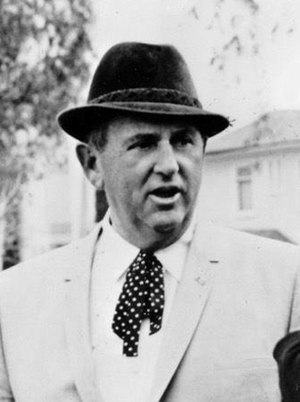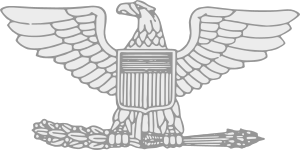Discover Your Roots
SIGN UPDiscover Your Roots
SIGN UPThe name Colonel is of English origin and is primarily a gender-neutral name. It means "Military Rank". Historically, the title of Colonel was given to a senior military officer in charge of a regiment in an army, with variations in modern usage across different countries and even within police forces and paramilitary organizations. The term has also been used as an honorific title and is linked to the word "column". The rank of Colonel has evolved over time, becoming a professional military rank held by an officer in command of a regiment or equivalent unit in the late 19th century. In modern armies, the position of Colonel has more ceremonial and specialist significance, with the honorary roles of "colonel-in-chief" and "Colonel of the Regiment" being maintained in some military systems. Additionally, the title of Colonel is also used by some police forces and paramilitary organizations.

Colonel Harland David Sanders, born on September 9, 1890, was an iconic American businessman and the mastermind behind the globally renowned fast-food chain, Kentucky Fried Chicken (KFC). Sanders ventured into various occupations in his early years, from being a steam engine stoker and insurance salesman to operating a filling station. It was during the Great Depression that he started selling his trademark fried chicken from a roadside restaurant in North Corbin, Kentucky, where he also developed his famous "secret recipe" and patented method of pressure frying. Recognizing the potential of restaurant franchising, Sanders opened the first KFC franchise in 1952, which marked the beginning of the brand's widespread expansion. At the age of 73, Sanders sold the company but continued as a brand ambassador. Despite his success, he remained critical of KFC's food quality in his later years. Sanders' upbringing was marked by hardships, having lost his father at a young age and shouldering familial responsibilities. His resilience and relentless pursuit of success ultimately led to the establishment of a culinary empire that continues to thrive globally.

Colonel Thomas Andrew Parker, born Andreas Cornelis van Kuijk, was a Dutch-American talent manager and concert promoter, best known for his management of Elvis Presley. After entering the United States illegally at the age of 20, Parker adopted a new name and claimed to be an American citizen. He began his career in music promotion in 1938, working with notable artists such as Gene Austin, Eddy Arnold, Hank Snow, and Tommy Sands. Parker's influence extended beyond music, as he also assisted in Jimmie Davis's campaign for governor of Louisiana, earning him the honorary rank of "colonel" in the Louisiana State Guard. His most significant association was with Elvis Presley, whom he managed from 1955 until Presley's death in 1977. Under Parker's guidance, Presley achieved commercial success, signing a recording contract with RCA Victor and becoming one of the most successful entertainers globally.Parker's management style was marked by his shrewd negotiation of Presley's contracts, merchandising deals, and media appearances. He also played a significant role in shaping Presley's personal life, influencing decisions such as his military service and marriage to Priscilla Beaulieu. Additionally, Parker encouraged Presley's transition into musical films, which became the focus of his career during the 1960s. Despite his declining influence in later years, Parker continued to manage the Presley estate until his death in 1997. His final years were

A colonel is the most senior field-grade military officer rank in the United States Army, Marine Corps, Air Force, and Space Force, ranking above lieutenant colonel and below brigadier general. Traditionally, officers required at least 22 years of cumulative service and a minimum of three years as a lieutenant colonel before being promoted to colonel. However, the National Defense Authorization Act of 2019 (NDAA 2019) now allows military services to directly commission new officers up to the rank of colonel. The pay grade for colonel is O-6. The insignia for a colonel is a silver eagle, representing the eagle dominating the Great Seal of the United States. The head of the eagle faces towards the olive branch, advocating peace rather than war. The U.S. rank of colonel has its origins in the British Army and was first introduced in the United States in 1802. During the American Civil War, the rank of colonel was commonly held in both the Confederate army and Union Army by those who commanded a regiment. This influx of colonels was due to the rapid growth of the Army during this period.

Colonel Walter E. Kurtz, famously portrayed by Marlon Brando, is a fictional character and the primary antagonist in Francis Ford Coppola's acclaimed 1979 film, Apocalypse Now. Based on the character of a nineteenth-century ivory trader from Joseph Conrad's novella, Heart of Darkness, Kurtz is depicted as a career officer in the United States Army, highly regarded and destined for a prominent position within the Pentagon. Following his deployment to Vietnam, Kurtz's critical report on military policies and unorthodox tactics led to his isolation from the mainstream military command. His subsequent involvement in the hearts and minds campaign and Project GAMMA, along with his brutal and controversial methods, resulted in his descent into madness. Despite his initial patriotic dedication, Kurtz's disillusionment with the war and the moral complexities of the conflict led him to adopt manipulative and sinister behavior. His ultimate demise is orchestrated by Captain Benjamin L. Willard, who is tasked with terminating Kurtz's command. The character of Kurtz epitomizes the moral ambiguity and psychological toll of war, as well as the descent into madness and the struggle for power and control in extreme circumstances.

Colonel March is a fictional detective character penned by the renowned American author John Dickson Carr. Known for his appearances in a series of "impossible crime" mysteries during the 1930s and 1940s, Colonel March was an official associated with the Department of Queer Complaints at Scotland Yard. John Dickson Carr drew inspiration for March from Major John Street, MC, OBE, with whom he co-authored the novel "Drop to His Death." The character gained further recognition when he was brought to life by the iconic Boris Karloff in the British TV series "Colonel March of Scotland Yard" in the 1950s. Carr's clever storytelling and Colonel March's enigmatic persona continue to captivate audiences, solidifying their place in the realm of classic detective fiction.
All images displayed on this page are sourced from Wikipedia or Wikimedia Commons.We use these images under their respective Creative Commons or public domain licenses. Wherever applicable, author attributions and license information are provided. If you believe an image is used incorrectly or outside its license terms, please contact us so that we can review and correct the issue.